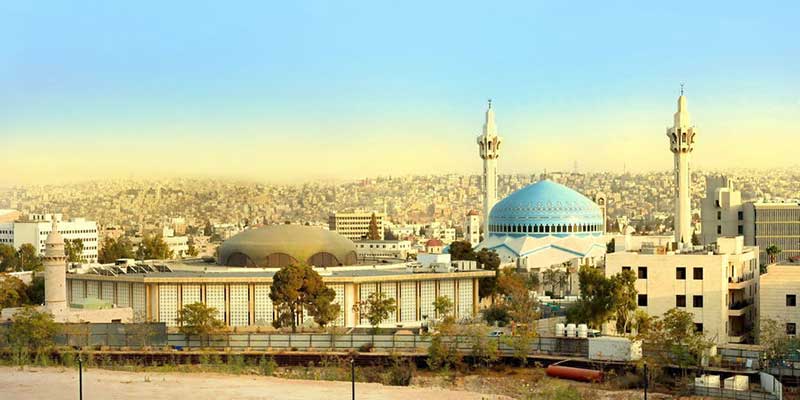With its population swollen by refugees from Syria, Jordan’s water prospects are even more dire.
Facing severe drought and needs of refugees, the country is digging deep for freshwater resources
Jordan, one of the driest countries on earth, is said to be experiencing its worst drought in 900 years. Its baseline water supply is inadequate and becoming worse with climate change. And, since the eruption of war and political unrest in the region, it has been difficult to name another country on the globe with less water per resident.
It’s estimated that Jordan’s scant water reserves can sustain a population of 2 million, yet the country’s current total population is approaching 10 million. The United Nations considers any nation with mean annual water supply below 500 m3 per resident to be experiencing “absolute scarcity.” Jordan’s weighs in at 150 m3.
The most emergent problem in recent years has been a growing population of refugees fleeing the civil war in Syria. An estimated 1.4 million refugees now live in Jordan, increasing demand for water by 20%. But war in Syria has also freed up some water supplies because it has ended irrigated farming in southern Syria, allowing more water into the Yarmouk-Jordan river system. But Jordan cannot count on this situation, which likely is temporary.
If the world continues to emit greenhouse gases at the current pace, drought in Jordan is expected to worsen. A Stanford University study predicts that by 2050, after an expected return of Syrian irrigation and the worsening of climate change, the Yarmouk’s contributions to an essential reservoir could decrease by 51-75%.
Water Reuse and Conservation
In Jordan’s capital, Amman, the municipal water infrastructure has gradually been improved with the replacement of old pipes and successful action against water theft. Amman recycles most of its groundwater for agricultural use and encourages citizen conservation through programs such as Water Wise Women, which is teaching women plumbing competency and water awareness.
In a traditional Jordanian household, a woman cannot let a male plumber in without her husband present. Empowering women to handle their own household plumbing, therefore, can save water and money by shortening the duration of pipe leaks. Some of the Water Wise Women are now becoming professional plumbers.
Red Sea-Dead Sea Project
If Jordan can’t secure new water sources soon, conservation measures likely will be inadequate. But, offering some hope is the Red Sea-Dead Sea Water Conveyance Project, which would place an 80 million m3/y desalination plant at the Jordanian port of Aqaba. Israel would buy half the water at cost, and the other half would go to Aqaba. The hypersaline brine from the plant would be piped 180 km to the Dead Sea. Israel would reciprocate by giving Jordan 50 million m3 of water from the Sea of Galilee.
But concerns have been raised over what effect the brine would have on the ecosystem of the Dead Sea, and negotiations have run into snags. To make things worse, introduction of the brine would probably only postpone, not prevent, the demise of the Dead Sea.
Tapping Deep for Fresh Water
Because of the lack of other options, Jordanian water management is turning to a short-term solution: tapping deep groundwater reserves. Seven new wells will be built 32 miles south of Amman to tap a deep fossil aquifer, known as the Disi, that still contains the fresh water that filled it 10,000 to 30,000 years ago. Jordan will have to drill twice as deep as usual.
But with amount of fresh water in aquifers worldwide probably inflated, it’s not clear how much time the new deep wells will buy for Jordan to establish adequate water infrastructure.
The crisis is occurring as new technologies for wastewater reuse and reverse osmosis (RO) desalination have made water treatment cost-efficient in a vastly expanded set of situations. Although Jordan has more options now, it has little time. University of Jordan Hydrogeology professor Marwan Al-Raggad assessed the plan to tap deep fossil aquifers as a last resort. “After this, we are out of chances,” he said.

